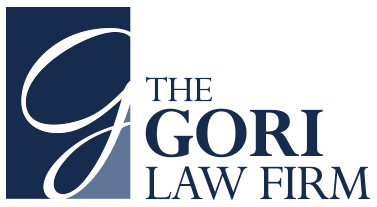Some Asbestos Suits Allowed Against Bankrupt Debtor’s Parent Company
It has been alleged numerous times that Quigley Company, Inc. manufactured and put potentially dangerous insulation products containing asbestos into the stream of commerce for many years, and has been sued thousands of times for allegedly causing injury and death to people exposed to the insulation. Ultimately, Quigley filed for bankruptcy in 2004 – which has become a common legal tactic for companies that are potentially liable for asbestos-related injuries and diseases. However this tactic does not always go as planned, as illustrated by the recent Second Circuit decision that affirmed a lower court’s ruling permitting some asbestos claims to proceed against Quigley’s parent, Pfizer Inc.
The Pfizer-Quigley Asbestos Connection
Pfizer, the publicly held international pharmaceutical giant, was founded in Brooklyn, N.Y., in 1849, after which it grew and prospered for decades. In 1968, Pfizer bought insulation company Quigley Company, Inc., which became a Pfizer subsidiary. Quigley sold some products with asbestos content beginning in the 1930s through the early 1970s.
Quigley ceased operations in 1992 and filed for Chapter 11 bankruptcy in 2004, at which time more than 160,000 asbestos claims had been brought against the company. It is believed by some that the bankruptcy filing was an attempt to provide the parent company, Pfizer, protection from asbestos-suit liability during the bankruptcy case.
The U.S. Bankruptcy Court for the Southern District of New York had previously declared that the automatic stay that stops litigation against a bankruptcy filer – here Quigley – extended to and stopped certain asbestos-injury claims against the parent company, Pfizer.
However, the U.S. District Court for the Southern District of New York reversed, saying that the bankruptcy injunction did not stop a particular subset of Pennsylvania state asbestos claims against the parent company, Pfizer.
In re Quigley Co., Inc.
The district court ruling was appealed to the U.S. Court of Appeals for the Second Circuit, which on April 10, 2012, affirmed the decision allowing the Pennsylvania claims against Pfizer.
These remaining Pennsylvania lawsuits are being brought alleging that Pfizer is liable under Pennsylvania law because the parent company used or allowed its logo and name to appear on Quigley products containing asbestos – the so-called “apparent manufacturer” theory of liability.
The Second Circuit said that it was certain that the apparent-manufacturer claims are distinct from suits based on the joint ownership and financial entanglement of the parent and subsidiary. Since the Pennsylvania state law claims based on use of Pfizer’s logo and name are different, they are not stopped by the bankruptcy injunction and will proceed in Pennsylvania state court.
According to Pfizer, litigation costs related to Quigley asbestos claims have already topped $1.5 billion. At the time of the court of appeals decision, Pfizer had already settled about 80 percent of the Quigley asbestos claims, according to the Wall Street Cheat Sheet.
In those remaining Pennsylvania cases that can now proceed, Pfizer has not yet been found liable. The court of appeals only answered the question whether Pfizer as a nondebtor parent company can be sued despite subsidiary Quigley’s bankrupt status. The court of appeals made no finding as to the ultimate liability in the Pennsylvania actions.
Medical Dangers of Asbestos Exposure
Health problems caused by asbestos are serious and potentially fatal. Asbestos was used in industrial, construction and household products for decades until government regulation began in earnest in the 1970s. People were exposed at work and in their homes when the tiny fibers became airborne. Workers also brought home the fibers on their clothing and exposed family members to the deadly mineral.
Asbestos can wreak havoc on the human body when inhaled. However, the health damage can also take decades to manifest; many people exposed years ago are only now becoming ill.
Some of the occupations that were more likely to create dangerous asbestos exposure were shipbuilding, construction, demolition, mining and car mechanics who worked with brakes, among others.
Pursue Your Legal Rights and Remedies
Part of the bankruptcy procedure in asbestos cases can be for the debtor company to put money into a so-called ” asbestos bankruptcy trust” to pay damages to those harmed by the company’s past asbestos-related products. Federal bankruptcy law allows bankruptcy courts to enter “channeling” injunctions that order future asbestos claims filed against debtor companies to such trusts for monetary recovery.
If you or a loved one has an asbestos-related health condition, or if a loved one has died from one, talk to a personal injury attorney who is experienced with the highly complex laws that come into play in asbestos litigation.

